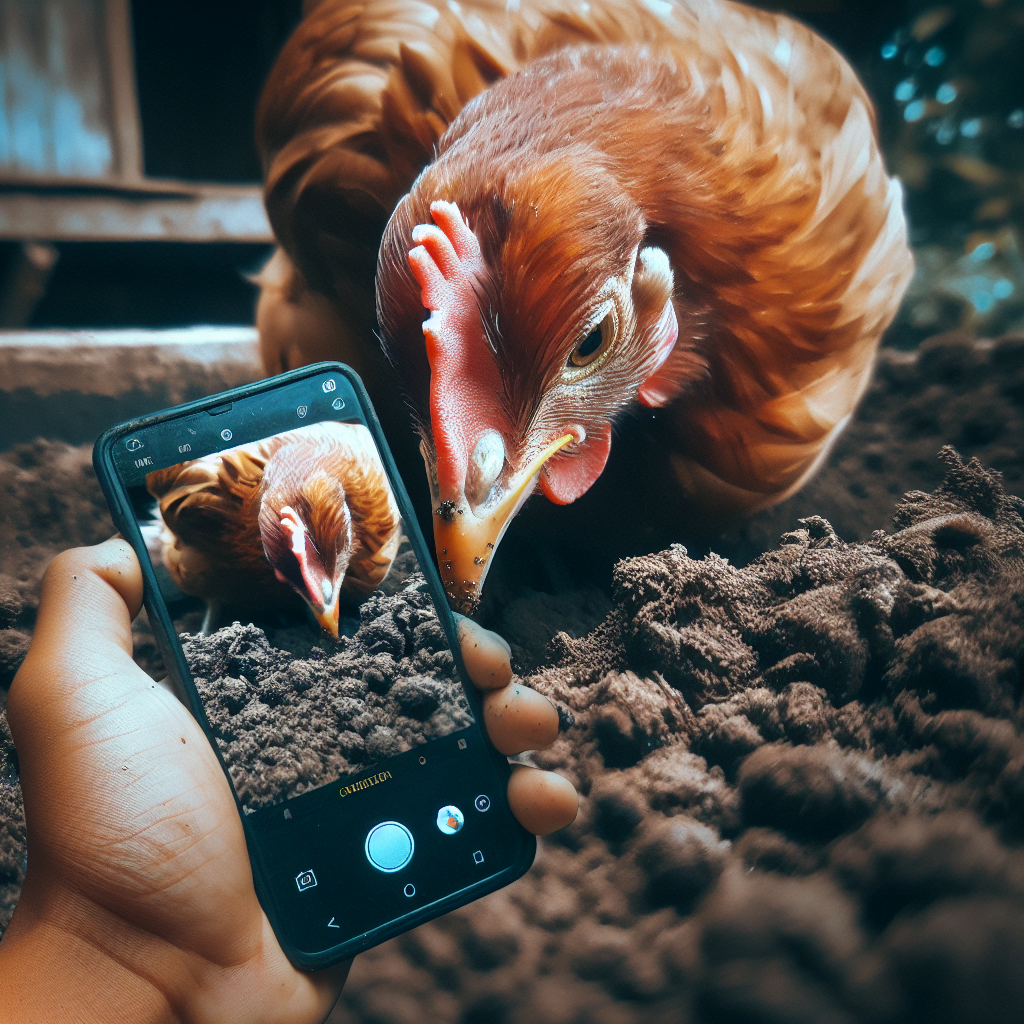If you’ve ever considered raising chickens for meat or eggs, you may have wondered about the ethical considerations involved. As we delve into this topic, we’ll explore the various aspects to keep in mind when it comes to the well-being of these feathered creatures. From their living conditions and access to natural behaviors, to the potential use of antibiotics and genetic modification, it’s essential to understand the ethical implications of raising chickens for our consumption. By exploring these considerations, we can make informed choices that align with our values and ensure the welfare of these animals.
Housing and Space
Cage-free systems
Cage-free systems are an increasingly popular alternative to traditional battery cage systems in the chicken farming industry. In a cage-free system, chickens are not confined to small, cramped cages but instead have the freedom to move around in a more natural environment. This allows them to engage in natural behaviors such as walking, perching, and stretching their wings. Providing chickens with more space and environmental enrichment helps to improve their welfare and overall quality of life. It is important to ensure that cage-free systems are properly designed and managed to provide adequate space, ventilation, and lighting for the chickens.
Free-range systems
Free-range systems take the concept of cage-free farming a step further by allowing chickens the opportunity to access outdoor areas. In a free-range system, chickens have the ability to roam and explore outdoors, which provides them with even more opportunities for natural behaviors like foraging and dust bathing. The additional space and exposure to natural elements can have a positive impact on the chickens’ well-being. However, it is crucial to ensure that the outdoor areas are safe and protected to prevent predators, disease transmission, and environmental hazards.
Battery cage systems
Battery cage systems have long been criticized for their ethical implications. In this system, chickens are confined to small wire cages, which restrict their movement and limit their ability to engage in natural behaviors. The close proximity of chickens in battery cages can lead to stress, injury, and high instances of disease transmission. The cramped conditions also make it challenging to maintain good hygiene and cleanliness. Many countries and jurisdictions have started to ban or phase out the use of battery cage systems due to ethical concerns surrounding animal welfare.
Animal Welfare
Humane treatment
Animal welfare is a fundamental ethical consideration when it comes to raising chickens for meat or eggs. Chickens should be treated with kindness, respect, and compassion throughout their lives. This includes providing them with appropriate housing, access to clean water and food, and protection from harsh weather conditions. Handling and transportation practices should be gentle and stress-free to minimize any potential harm or aversive experiences. Regular monitoring of the chickens’ health and well-being is essential to ensure early detection and treatment of any potential issues.
Physical and psychological well-being
Chickens, like any living beings, have physical and psychological needs that must be met in order to promote their overall well-being. Physical well-being includes providing chickens with a suitable diet that meets their nutritional requirements, as well as access to veterinary care to address any health concerns. It is important to monitor the flocks for signs of illness or distress and take appropriate action promptly.
Psychological well-being is equally important and involves providing chickens with opportunities to engage in natural behaviors. Enrichment activities such as providing perches, nesting areas, and toys can help stimulate their minds and keep them mentally engaged. Allowing access to natural light, fresh air, and appropriate social interactions can contribute to their overall mental well-being. Ultimately, promoting both the physical and psychological well-being of chickens leads to a higher quality of life and improved welfare.
Health and Nutrition
Access to veterinary care
Ensuring chickens have access to veterinary care is an ethical obligation for chicken farmers. Regular check-ups, vaccinations, and prompt treatment of any illnesses or injuries are essential to maintain the health and welfare of the birds. A comprehensive healthcare program should be developed and implemented to monitor and address any health issues that may arise. This includes regular veterinary visits, preventive measures, and maintaining records of medical treatments and interventions.
Proper nutrition and balanced diet
Proper nutrition is vital for the health and well-being of chickens. It is the responsibility of farmers to provide a balanced diet that meets the specific nutritional requirements of the birds at each stage of their life. A well-balanced diet plays a critical role in supporting growth, reproduction, and overall immunity. Farmers should ensure that feed is formulated with the appropriate levels of protein, carbohydrates, fats, vitamins, and minerals. Using high-quality feed ingredients and regularly testing for contaminants is essential for maintaining the nutritional integrity of the diet.
Genetic Manipulation
Selective breeding
Selective breeding is a technique commonly used in chicken farming to develop and improve specific traits, such as growth rate, egg production, and disease resistance. While selective breeding can help enhance certain desirable characteristics, it is essential to consider the ethical implications. Breeding practices should prioritize the health, welfare, and overall well-being of the chickens. Genetic diversity should be maintained to reduce the risk of inbreeding and associated health issues. Creating breeding programs that focus on genetic diversity and overall animal welfare will contribute to a more ethical approach to genetic manipulation.
Genetic modification
Genetic modification (GM) involves altering the genetic material of organisms, including chickens, to introduce specific traits or characteristics. While GM can offer potential benefits such as disease resistance or enhanced productivity, its ethical implications must be carefully considered. Transparency and clear labeling are crucial to inform consumers of products derived from GM techniques to allow for informed choices. Research and regulations should ensure that the genetic modifications are safe and do not compromise the health or welfare of the chickens, and the potential benefits outweigh any potential risks.
Slaughter Methods
Humanity in slaughter
Ethical considerations extend to the practices employed during the slaughter of chickens for meat. It is essential to ensure that slaughter methods prioritize the humane treatment of animals, minimizing pain, stress, and fear. Employing techniques that result in swift and painless death is crucial to uphold ethical standards. Slaughterhouses should have well-trained employees who handle the chickens with care and use methods that are scientifically proven to be effective in minimizing suffering.
Stunning techniques
Stunning techniques play a vital role in ensuring a humane and painless slaughter process. Stunning techniques, such as electrical stunning or controlled atmosphere stunning, are used to render chickens unconscious before slaughter. This prevents the animals from experiencing pain or distress during the subsequent stages of the slaughter process. It is crucial to use stunning methods that are effective in rendering the chickens unconscious and to regularly monitor and assess the effectiveness and humaneness of the stunning techniques used.
Religious considerations
Religious considerations are important when it comes to the slaughter of chickens. Some religious practices require specific methods of slaughter, such as halal or kosher, which involve specific rituals and requirements. When considering religious slaughter practices, it is essential to ensure that they are performed with the highest standards of animal welfare in mind. This includes proper training and certification of individuals involved in the religious slaughter process to ensure that animals are handled and slaughtered humanely, adhering to both religious and ethical standards.
Environmental Impact
Land use and habitat destruction
Chicken farming can have significant impacts on land use and habitat destruction. Clearing land for the construction of poultry houses and the cultivation of feed crops can result in the destruction of natural habitats and biodiversity loss. Ethical considerations involve minimizing the conversion of natural ecosystems and adopting practices that prioritize sustainable land use. This can be achieved through practices like rotational grazing, agroforestry, and the preservation of natural habitats on the farm.
Water resource impact
The chicken farming industry requires substantial water resources for various activities, including drinking water for the birds, cleaning of poultry houses, and processing facilities. The ethical use of water resources involves implementing efficient water management practices to minimize water consumption and prevent pollution. Employing technologies such as water recycling and rainwater harvesting can help reduce the environmental impact on freshwater resources. Additionally, farmers can explore the use of alternative water sources, such as graywater, to reduce the strain on local water supplies.
Waste management
Chicken farming generates a significant amount of waste, including manure, feathers, and other organic materials. Proper waste management is essential to prevent pollution of soil, water, and air. Ethical considerations involve implementing waste management systems that minimize environmental pollution, ensure proper disposal of waste, and promote the use of waste as a valuable resource. Innovative practices such as composting, anaerobic digestion, and nutrient management plans can help mitigate the environmental impact of waste generated by the chicken farming industry.
Supply Chain Transparency
Source of feed and ingredients
Supply chain transparency plays a critical role in ensuring ethical chicken farming practices. It is essential for farmers to have visibility into the sources of feed and ingredients used in chicken diets. This includes knowing the origin of the grains, proteins, and supplements used in the feed to ensure that they are sustainably produced, free from contaminants, and ethically sourced. Transparent supply chains enable farmers and consumers to make informed decisions about the environmental and ethical impacts of the feed ingredients used.
Traceability and labeling
Traceability and labeling are essential components of ethical chicken farming. Consumers have the right to know where their food comes from and how it was produced. Clear and accurate labeling helps consumers make informed choices based on their ethical concerns. Providing information on the farming system (cage-free, free-range, etc.), feed ingredients, and any certifications or standards that were met ensures transparency and allows consumers to support chicken farming practices that align with their values.
Consumer Awareness and Demand
Organic and free-range labeling
Consumers play a crucial role in driving ethical change in the chicken farming industry through their purchasing decisions. Organic and free-range labeling provides consumers with the opportunity to choose products that are produced using specific standards and practices. Organic labeling indicates that the chickens were raised without the use of antibiotics, hormones, or genetically modified organisms. Free-range labeling indicates that the chickens had access to the outdoors. By supporting organic and free-range products, consumers can demonstrate their demand for more ethical chicken farming practices.
Educating consumers about chicken farming practices
Educating consumers about chicken farming practices is essential to raise awareness and promote ethical considerations. Providing information on labels, websites, and marketing materials can help consumers understand the impacts of their choices on animal welfare, the environment, and worker rights. By highlighting the benefits of ethical chicken farming practices and explaining the importance of supporting farmers who prioritize animal welfare and sustainability, consumers can make more informed and ethical choices.
Worker Rights and Safety
Fair wages
Ensuring fair wages for workers in the chicken farming industry is an ethical imperative. Fair compensation allows workers to support themselves and their families and provides them with a better quality of life. Chicken farmers should strive to meet or exceed minimum wage standards and ensure that workers receive fair compensation for their labor. Fair wages contribute to worker satisfaction, loyalty, and overall well-being.
Workplace safety and conditions
Worker safety and working conditions are ethical considerations that must be prioritized in the chicken farming industry. Providing a safe and healthy work environment is essential to protect workers from accidents, injuries, and occupational hazards. Implementing safety protocols, providing appropriate training, and maintaining equipment and infrastructure are essential to create a safe workplace. Additionally, ensuring reasonable working hours, rest breaks, and access to restroom facilities are crucial for promoting the dignity and well-being of workers in the chicken farming industry.
Local and Global Food Security
Balancing local consumption and global needs
Ethical considerations extend beyond individual farms to broader issues of global and local food security. Balancing local consumption and global needs for chicken products requires careful consideration of resource allocation and food distribution. Prioritizing local consumption can help promote local food systems, support small-scale farmers, and reduce carbon emissions associated with long-distance transportation. However, global demands should also be considered, as chicken meat and eggs are important sources of affordable protein and nutrition for many communities worldwide. Developing sustainable practices that balance both local and global needs is critical for long-term food security.
Sustainable practices for long-term food security
Sustainable practices are key to ensuring long-term food security in the chicken farming industry. This involves employing environmentally responsible methods that conserve natural resources, reduce greenhouse gas emissions, and promote biodiversity. It also includes promoting regenerative agriculture practices that enhance soil health, water conservation, and carbon sequestration. By prioritizing sustainability, chicken farmers can contribute to long-term food security while minimizing negative environmental impacts and preserving resources for future generations.
In conclusion, raising chickens for meat or eggs involves a range of ethical considerations that revolve around housing and space, animal welfare, health and nutrition, genetic manipulation, slaughter methods, environmental impact, supply chain transparency, consumer awareness and demand, worker rights and safety, and local and global food security. By prioritizing and implementing ethical practices in these areas, the chicken farming industry can work towards a more sustainable, responsible, and compassionate approach to meeting the demand for chicken products.




